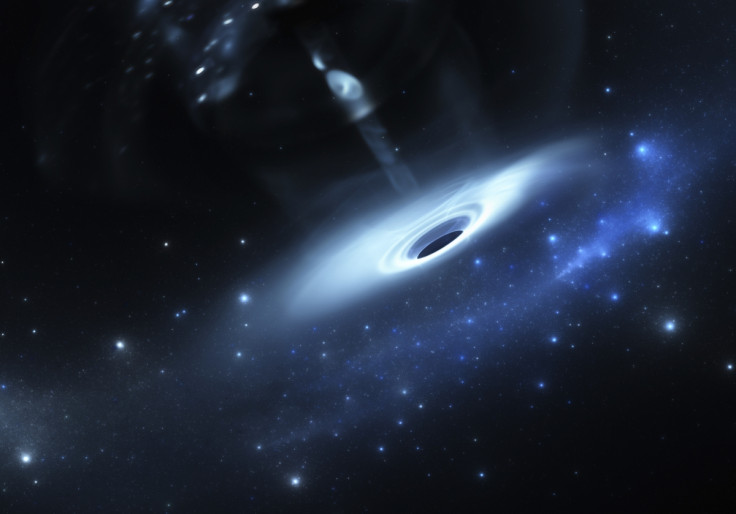Echoes of gravitational waves: How we may have found the first empirical evidence of quantum gravity
Jahed Abedi explains what these echoes discovered in the LIGO data could mean for science.
Earlier this year, scientists announced the discovery of gravitational waves – ripples in spacetime first predicted by Albert Einstein a century ago. Now, a team of researchers has analysed the data from the Laser Interferometer Gravitational-Wave Observatory (LIGO) to find what they believe to be echoes hidden within the gravitational waves.
Should their findings, which appear on the preprint server arxiv.org ahead of peer review, be confirmed, it would show that Einstein's general theory of relativity breaks down at the edges of black holes and provide the first empirical evidence of quantum gravity.
Einstein said nothing – not even light – can escape a black hole. This means nothing can exist at its event horizon (the edge of a black hole that is the point of no return). However, quantum theory says the opposite –information can never truly disappear and must continue to exist in some form. This is known as the information paradox.
If Einstein's theory is correct, then gravitational waves cannot produce echoes. If, however, the edges of black holes are more fuzzy, with threads of energy tangled up at the event horizon, then a gravitational wave would bounce around it before leaving the black hole – creating echoes in the process.
Jahed Abedi, Hannah Dykaar and Niayesh Afshordi used a mathematical model to calculate when echoes (if they exist) should appear following the initial gravitational wave. They found these echoes should emerge at 0.1, 0.2 and 0.3 seconds later – and this is what they saw in the LIGO data.

This does not necessarily mean echoes have been discovered, however. The paper has not yet been peer reviewed and the margin of error (as little as 1 in 270) is below the normal threshold you need to confirm the finding. Read the full story here.
In an interview with IBTimes UK, Abedi explains what the study and the potential implications mean:
Why were you looking for echoes in the data? Is this something that you expected to find?
In Einstein's theory of general relativity, black holes act like a bottomless pit as nothing can escape from the black hole horizon. So we don't expect to see any echoes. However this theory is not consistent with quantum mechanics.
This inconsistency can be cured at the event horizon where theory of general relativity is sacrificed by replacing the black hole horizon by a firewall or fuzzball. They introduce quantum structure for the black hole event horizon. Therefore it is no longer bottomless and we expect to see echoes where part of the gravitational wave going into the black hole is reflected back.
Read more:
Stephen Hawking's soft hair theory means information could be retrieved from black holes
Stephen Hawking and information paradox: Black holes could be passages to other universes
If Earth hit the surface of a black hole 'it would become a hologram copy and continue to exist'
Was it a surprise when you saw the data aligning with your predictions?
Theory of general relativity has worked perfectly for 100 years. There were no direct detection of quantum gravity or also Planck scale physics. So the short answer is yes!
What is the margin of error and why is this important?
This could be just fluke. However the probability is very low. Depending on different estimations it varies between one in 100 to 270.
Have you had much response from the scientific community yet?
Majority of the people are excited and surprised. We haven't received a response from LIGO community yet. I know that they are doing the same analysis that we did and we are waiting to get response from them.
Should the findings stand up, what would it mean for our understanding of black holes?
If this is true it should be confirmed in future events.
With this finding, mathematics of quantum black holes comes into the physical reality. If confirmed, this will be the first observation of Planck scale physics and first direct empirical evidence for quantum gravity.
What would it mean for our understanding of general relativity and the information paradox?
We found that general relativity is breaking down at the edge of the black hole. This also sheds light on the information problem as some resolutions of black hole information paradox suggest strong modifications at the black hole horizon such as firewall or fuzzball.
How difficult would it be to test the theory with LIGO?
Here the problem is we don't have a concrete model for a quantum black hole. However, in future with better data and more events we are able to test alternative theories of quantum black holes.
© Copyright IBTimes 2025. All rights reserved.






















